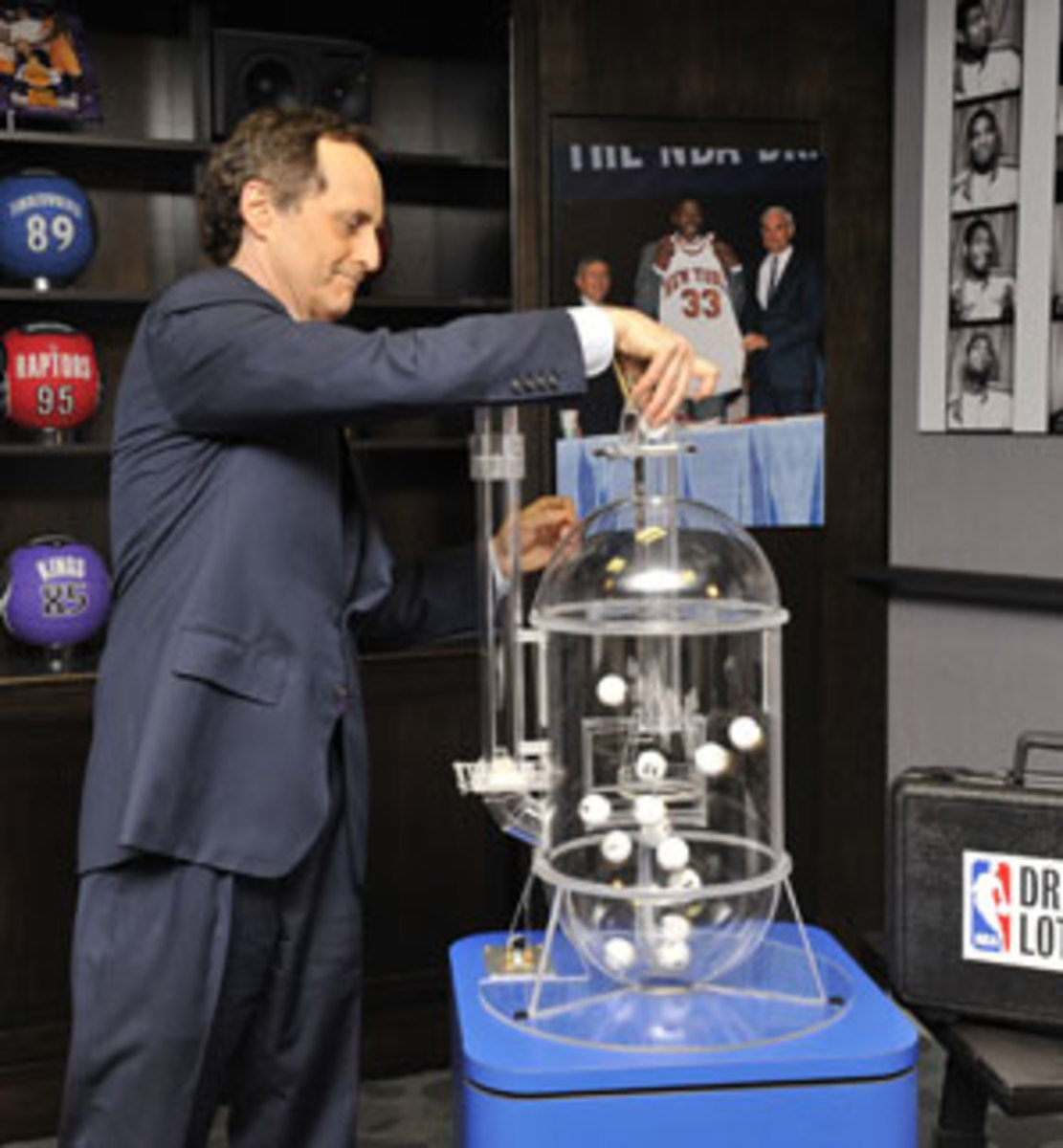NHL offers ready draft model if NBA faces canceled 2011-12 season
Free agency is a pressing topic. If a collective bargaining agreement isn't agreed to in time to salvage a season, the summer of 2012 could become a free-agent bonanza. The mediocre Class of 2011 (headlined by Nene, Marc Gasol, David West and Tyson Chandler) would mix in with the ballyhooed Class of '12, a star-studded group likely led by Dwight Howard, Chris Paul and Deron Williams. An even more pressing issue: What happens with the 2012 NBA draft?
"It's an issue," one Eastern Conference executive told SI.com. "We have talked about it, and I bet other teams have too."
An NBA spokesman said the league is focused on the collective bargaining negotiations and would not comment on hypotheticals, but there is precedent for the NBA to examine. After canceling the 2004-05 season, the NHL was faced with a choice: slot teams in the order they finished the '03-04 season, or improvise a weighted lottery system that gives each team a shot at landing the No. 1 pick. It was a critical decision, as the consensus top pick that year, Sidney Crosby, was considered a franchise-changing talent.
The NHL elected to use a lottery and cooked up a creative solution. The amount of lottery balls a team had was based on two criteria: the number of times a team made the playoffs the last three seasons and the number of times a team had drafted No. 1 in the previous three drafts. Using that model, four teams -- the New York Rangers, Buffalo, Pittsburgh and Columbus -- each had three of the 48 balls in the bin. Ten teams had two balls and 16 had one.
The result was one of the more compelling drafts in NHL history. While Pittsburgh, which finished the '03-04 season with a league-worst 58 points, secured the top pick in 2005, there were some surprises. Perennial doormat Florida picked 29th. Ottawa and Vancouver, two 100-plus-point teams in the previous regular season, were slotted ninth and 10th, respectively.
Should the NBA adopt a similar system, it would be weighted like this:
Three balls: Minnesota, Golden State, New Jersey, Toronto, Sacramento.
Two balls: Detroit, Houston, Indiana, L.A. Clippers, Milwaukee, New York, Charlotte, Phoenix, Memphis, Washington.
One ball: Chicago, Cleveland, Dallas, Denver, L.A. Lakers, Oklahoma City, Philadelphia, Portland, San Antonio, Utah, Atlanta, Miami, Orlando, New Orleans, Boston.
Assuring that every team has a chance to get the No. 1 pick will likely be the sticking point. "If they didn't or if the teams that didn't make the playoffs last year were the only ones in the lottery," the East executive said, "the playoff teams would go ballistic." Why? Because while the 2011 draft was considered to be low on top-tier talent, the 2012 class has the potential to be stocked. Kentucky's Anthony Davis, Connecticut's Andre Drummond, North Carolina's Harrison Barnes and Ohio State's Jared Sullinger are already viewed as NBA-ready prospects, while more raw talents like Duke's Austin Rivers, Connecticut's Jeremy Lamb and Kentucky's Marquis Teague could rocket up the draft board quickly.
"It's loaded," an Eastern Conference personnel scout said. "Look at this year's draft and, outside of Kyrie Irving, you can't say if there is another immediate impact player. Next year, there are probably going to be eight or nine guys who fit that description."
If the next collective bargaining agreement includes rules that help restrict player movement, landing an impact player in the draft could become increasingly important. The possible scenarios in a league-wide lottery are landscape-changing:
• What if the Nets, who have a sparkling new arena in Brooklyn and (if they can re-sign him) a franchise point guard in Williams, were slotted in a position where they could acquire an elite forward like Barnes or Sullinger? Either might make Brooklyn even more enticing to Howard.
• What if Boston, which has two first-round picks in the '12 draft, is able to get players who could complement the Big Three now and replace them later?
• What if any of the uber-elite teams (such as Miami, Dallas, Oklahoma City and Chicago), who have a slim chance of landing a high pick, are able to fortify already talented rosters? (Note: Per RealGM, Miami has a No. 1 pick, though Cleveland has the right to swap with the Heat. Both could still get a high selection. Details of other picks are listed there.)
A canceled season could create a scenario that might reshape the league in an unexpected way.





